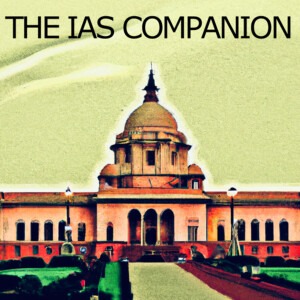
Polity EP 8 Fundamental Rights | Article 14, 15, 16, 17 ,18 | Constitution | UPSC podcast | laxmikan
 2023-09-10
2023-09-10
Download
Right click and do "save link as"
Today's lecture delves into Article 14 of the Constitution of India, a beacon of justice that guarantees equality before the law and equal protection of laws to all, regardless of citizenship. It distinguishes between "equality before the law" and "equal protection of laws," highlighting their significance in ensuring fairness and non-discrimination.
Article 14 establishes that reasonable classification is permitted as long as it is based on intelligible and substantial distinctions, preventing arbitrary or evasive discrimination. The concept of "Rule of Law" and its three core aspects - absence of arbitrary power, equality before the law, and individual rights - are central to our Constitution, with Article 14 being a fundamental pillar.
Exceptions to equality before the law are outlined, including immunities for the President, Governors, and members of Parliament and State Legislatures. The 93rd Amendment Act introduced provisions for reservations based on economic criteria, aiming for social justice.
Moving on to Article 15, it prohibits discrimination on grounds of religion, race, caste, sex, or place of birth, with exceptions for special provisions such as those for women, socially and educationally backward classes, Scheduled Castes, and Scheduled Tribes. The concept of "creamy layer" among OBCs is discussed, along with the 103rd Amendment Act introducing reservations for economically weaker sections (EWSs).
Article 16 guarantees equality of opportunity in public employment, barring discrimination based on various factors. It also permits reservations for certain categories, including SCs, STs, and OBCs, with the Mandal Commission recommendation and subsequent legal developments explained.
Finally, Articles 17 and 18 address untouchability and titles, respectively. Article 17 abolishes untouchability in all forms, while Article 18 abolishes titles except military or academic distinctions.
In conclusion, these constitutional provisions uphold principles of justice, fairness, and non-discrimination in India, guiding the nation toward a more inclusive and equitable society.
view more
More Episodes
012345678910111213141516171819
Create your
podcast in
minutes
- Full-featured podcast site
- Unlimited storage and bandwidth
- Comprehensive podcast stats
- Distribute to Apple Podcasts, Spotify, and more
- Make money with your podcast
It is Free
- Privacy Policy
- Cookie Policy
- Terms of Use
- Consent Preferences
- Copyright © 2015-2024 Podbean.com





